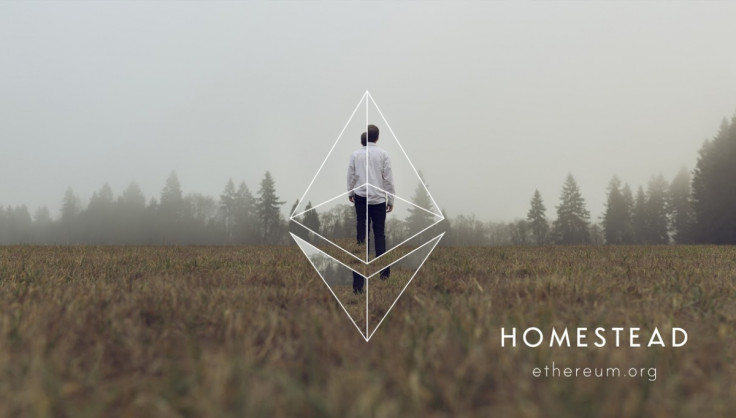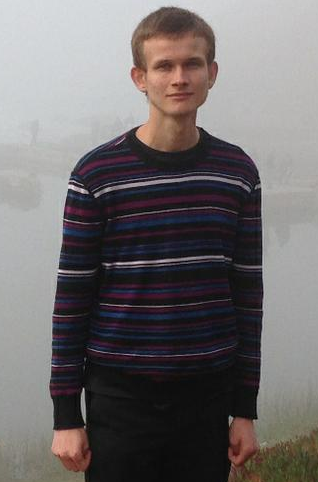Ethereum's Vitalik Buterin asks if Google, Apple and Facebook are threatened by blockchains

Vitalik Buterin, inventor of consensus computing system Ethereum, said a "blockchain blindspot" around the likes of Google, Facebook and Apple could signify the threat this technology poses to those sorts of companies.
Buterin pointed out that Ethereum has heard from banks, energy companies, manufacturing companies and governments. "Google - pretty much nothing, Uber - pretty much nothing, Facebook - pretty much nothing, Apple - pretty much nothing," he said.
The Gafa companies (Google, Apple, Facebook, Amazon) have been conspicuously silent on blockchain, but it could be said a serious advance into some kind of platform banking model from them (as has happened in China with Alipay for instance) is also something the fintech universe awaits. Airbnb made an acquisition of crypto engineers last month and then denied they had any interest in blockchain.
It's a situation that intrigues Buterin. He told IBTimes: "Google and Uber and so forth haven't reached out to us; they haven't come to any blockchain meet-ups. That's one of those blindspots that I'm interested in.
"Why exactly haven't we seen that much from that sector? Is it because there isn't much for them? Is it because they just haven't found the right angle? Or, is it because they feel more threatened by it, whereas other groups see it as an opportunity for them?
"The idea they feel threatened might actually be the correct answer to higher degree than some people appreciate."
Microsoft
As far as embracing blockchain and making itself more technologically progressive, Microsoft seems to have done the best job, noted Buterin. "If you look at the applications like user sovereign identity, that's something that some groups are very interested in because they see themselves as using that. If you look at a company like Microsoft for example, they build Windows, they build a lot of cloud software, they build a lot of software for enterprises.

"Moving from a cloud model, where the cloud can control everything, to a cloud model where the user controls more things is actually good for them. They see blockchains as a benefit for a number of different reasons. Whereas, if you look at uPort, the fact is sign-in with Facebook is direct competition for that."
Buterin returns to a firmly held belief: we should remember that progress isn't just institutional progress. "In some cases startups are the way that things are going to have to happen. In some of these cases where you don't see the big Silicon Valley companies coming in, you see startups coming in. And interestingly enough, a lot of the time these startups aren't even based in Silicon Valley.
"So web 2.0 seems to have been very focused on the west coast but blockchains are very geographically diverse. Like you see the west coast, east coast, Toronto, London, China. That's one of the things really excites people: it's very collaborative in an interdisciplinary way, it's very collaborative in an international way, and ourselves at Ethereum, we have been trying really hard to be as diverse as we can in both of those dimensions and I think it's helping a lot."
China
Ethereum recently announced that DevCon2 will be held in Shanghai, coinciding with the second Global Blockchain Summit also taking place in the city in September 19-24. Buterin, who leads an entirely itinerant existence, has dedicated a lot of travel time to China.
He said: "Lots of interesting stuff in China. So like China has had a blockchain community for over six years and a lot of people don't really realise that. Initially it was the Bitcoin community just like it was initially the Bitcoin community in the US - although in China it was focused heavily on mining, focused heavily on exchange, because in part, they've got the hardware, they can mine better than anyone else. They have got cheap electricity in some places, and there is a very substantial culture there that's just interested in things that just gather a reliable profit very quickly.
"On the exchange side, I would actually say it's even more lightly regulated than in a lot of other countries, which is something that's a bit surprising given how we hear how China supposedly scores dead last on a whole bunch of transparency and freedom indices and so forth. But the real story is, I think, a lot more nuanced than that."
Perhaps the intense focus on Bitcoin has made China less predisposed to prioritise the underlying ledger technology, but an interest in blockchain is now exploding.
"The institutions have starting getting involved and that's something I think started a year after it did everywhere else, but it's something that's really growing quickly. I remember visiting China in 2014, it was just Bitcoin. I visited China again in 2015; I came for the blockchain summit in October and then you saw stock exchanges, governments, banks, IT companies all sort of descending on the scene and trying to figure out exactly what they are supposed to be doing, what's going on."
The Ethereum Foundation has announced partnerships with Wanxiang Blockchain Labs to foster education and development of the technology in China. Buterin has visited growing blockchain communities across many of the main cities.
"In Beijing it's been mostly academics; not even so much academic from a sort of massive cryptography standpoint, but academic from an application standpoint.
"There's lots of interest from banks. There are groups over in Changchun that are trying to create banking consortiums. It's not something that really formally exists yet, but it's something that people are very actively working on."
China is technologically very progressive compared to the US, for example, where people are used to things like 3% transaction fees, charge-backs, having to wait three days for payments to clear and so forth. China has none of that. The Chinese system is instant: it's about as efficient as a blockchain and in some cases even more so, said Buterin.
Ethereum
Buterin also took some time to highlight interesting developments within Ethereum itself. On the Dapps side, the announcement about energy trading, made in association with NYC-based ConsenSys, was a milestone. The progress on the identity wallet system uPort has also been moving fast. And while much of the attention is focused on internal banking projects, the non-financial stuff is starting to happen even more quickly these days, he said.
In terms of the challenges facing the protocol, he pointed to the usual bottom level suspects: proof of stake, scalability, privacy.
"On the middle level - a level that's also important - there's stuff like making it easier to use, making it easier to develop. Also stuff like wallet security - how do you build systems that are robust against things like people's computers getting hacked, without re-introducing centralisation flaws again.
"Or if you have smart contracts that theoretically have trust-free code, how do you make sure that code doesn't have bugs in it, and doesn't have secret back doors to let the creators steal all the money. There's issues around like, how do we figure out exactly what security and fairness properties people want. That's also infrastructure, and something that's a bit more application specific; something I think is going to evolve sort of with the applications. That's the kind of security that can basically only evolve crisis by crisis in some cases."
EVM
Buterin said in one of the talks he gave last week in London that work, including academic work, was being done to improve the efficiency of the Ethereum Virtual Machine (EVM). Computation on the EMV can be expensive because every contract is run on every full Ethereum node, resulting in consensus of the output. The EVM will only execute code when it receives a message verified by a digital signature, and the information stored on the blockchain says it is appropriate to do so.
"We have been looking at lot at improving the efficiency of the virtual machine. So like right now there are some design decisions that were made that ended up being a lot less efficient than they could have been and that's actually perfectly fine in a lot of applications.
"I think people don't realise that running a piece of code that verifies some conditions for a financial transaction, that by itself is a lot less work than verifying a cryptographic signature and so even if the virtual machine is inefficient, the cryptographic signature is still going to dominate.
"But if you are trying to like do shiny new cryptography on top the virtual machine, that's where the efficiency requirements come in. So, particularly for things like privacy, we talk about ring signatures, zero knowledge proofs, various other kinds of signatures, mixers, whatever.
"In order for that stuff to run efficiently you actually have to make the virtual machine able to efficiently support it and that's something that we are starting to work with academic groups on. We have done some work building some of those middle level tools ourselves but that's in combination with the community.
"There have been groups that have been getting grants to do that. Some of them are based in universities, some of them are actually inside of corporate research labs."
Crowdsales and tokens
The ebullient vitality of the Ethereum community has been on show recently with the advent (and inundation) of crowdfunding token sales, such as DigixGlobal which raised $5.5m in a matter of hours.
Buterin said he was delighted with results of the Digix crowdsale. Asked if we are now likely to see a wave of token sales happen, Buterin said: "To some degree it could be that there's hype, like perhaps there is going to be a bubble. We will see over the next year, I think, as people continue figuring out what are the areas where crowdsales really make sense, what are the areas where DAOs (decentralised autonomous organisations) really make sense.
"You have to try and figure out what are you trying to get out of having a DAO. The thing that I often ask startups on top of Ethereum is: can you please tell me why using the Ethereum blockchain is better than using Excel.
"And if they can come up with a good answer, that's when you know you've got something really interesting."
© Copyright IBTimes 2025. All rights reserved.






















